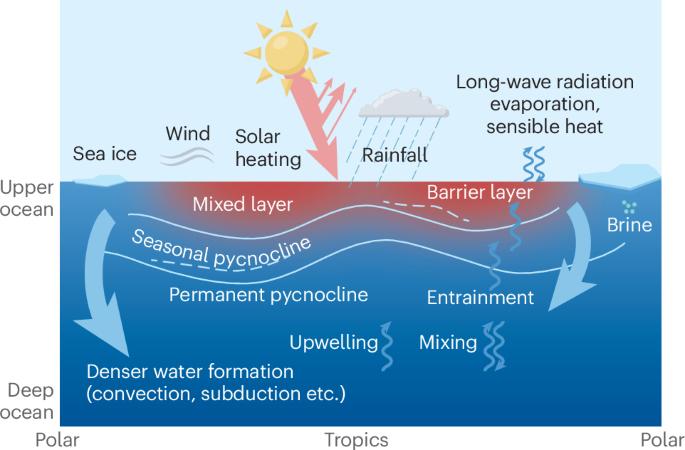Ocean stratification, the density-driven layering of seawater, plays a critical role in regulating oceanographic and climatic dynamics. Recent observations reveal a concerning trend: from 1960 to 2024, stratification in the upper 2,000 meters of the ocean has increased by 0.8% per decade, with projections indicating a further rise of 1.4% per decade by 2100 under the Shared Socioeconomic Pathway 2-4.5 scenario. This intensifying stratification poses significant implications for marine ecosystems, nutrient distribution, and global climate patterns, highlighting an urgent need for comprehensive understanding and adaptive strategies in response to these changes.
The implications of these findings are profound, as increased stratification can lead to reduced nutrient mixing, impacting primary productivity and altering food webs. The projected changes necessitate a reevaluation of current models and climate predictions, emphasizing the importance of integrating stratification dynamics into future climate assessments. As the ocean continues to stratify, stakeholders must prioritize research and policy initiatives aimed at mitigating the effects of climate change on marine environments, ensuring the resilience of oceanic systems and their capacity to support biodiversity and human livelihoods.









